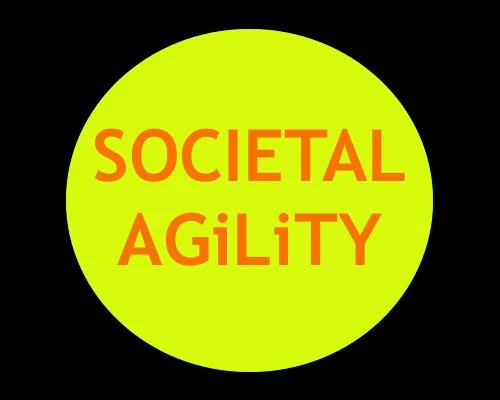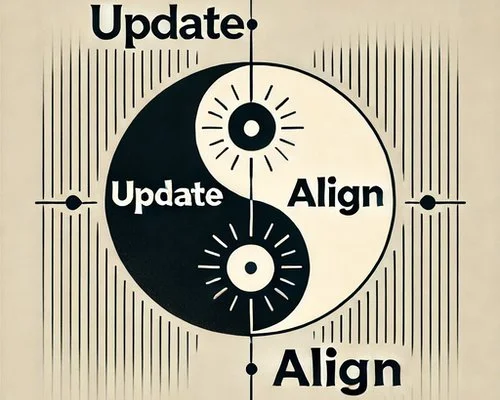What MAGA Reveals About a Broken Democratic Order
I’ve been sitting with something since reading John Burn-Murdoch’s latest piece in the Financial Times — “Why the MAGA mindset is different”. He makes a compelling case: that decisions coming out of the US today aren’t just surprising or chaotic — they’re operating on an entirely different set of values than what the rest of the democratic West assumes.
That really landed for me.
Because the truth is, it’s not just that leaders have changed. The whole operating system of liberal democracy feels like it’s glitching — maybe even broken.
Let me explain what I mean.
For years, we’ve told ourselves that representative democracy is designed to serve people — to create conditions for wellbeing, security, opportunity, and (dare I say it?) a bit of citizen delight. But more and more, it feels like what we have is a kind of corporate democracy — where the real electorate isn’t us, the public, it’s donors, lobbyists, and shareholders.
We haven’t elected leaders so much as we’ve hired account managers for capital.
What Burn-Murdoch articulates so well is that while MAGA-era America looks unrecognisable from Europe’s liberal democracies, this isn’t just a political shift — it’s a values shift. Trump, Vance, and their crew aren’t just breaking norms for the sake of it. They genuinely don’t believe in the same rules of the game anymore — international cooperation, institutional trust, diplomacy, multilateralism. These aren’t inconvenient obstacles to them — they’re irrelevant. The playbook is zero-sum power, self-interest, and spectacle.
But here’s the kicker: that same value drift is happening everywhere — not just in MAGAland.
It’s just that in other parts of the West, it’s wearing a more polished suit.
Lobbyists disguised as politicians. Policymaking that serves corporate interests at the expense of public good. Public services being hollowed out while profits are ringfenced. People are told to “tighten belts” while corporations pay record-low taxes and influence entire legislative agendas.
And still, we cling to the rituals of democracy — elections, debates, party manifestos — as if they still guarantee meaningful choice. But if the only options on offer are variations of the same neoliberal playbook, what are we really choosing?
No wonder people are tuning out — or lurching toward extremes. It’s not because they’re uninformed or irrational. It’s because they can feel the system has stopped serving them. The middle ground isn’t holding — not because people are more polarised, but because that middle has become vacuous.
So where does that leave us?
Honestly, I don’t think we fix this with better politicians. We need better systems. Systems that start from the assumption that governance should be in service of citizens, not corporations. Systems that prize dignity, participation, and care over short-term gains and market logic.
We need a new civic imagination. One where citizen delight — not GDP, not market sentiment, not donor satisfaction — is the North Star.
And this is where think tanks like Better-Gov, startups like ChangeCraft.io, and citizen lead innovation labs like Peace Through Prosperity are doing important work — rethinking public sector decision-making, bringing agile thinking into policy, and helping governments shift from outdated bureaucratic structures to modern, citizen-centred systems. Their focus on data, collaboration, and systems design isn’t just an upgrade — it’s part of the transformation we urgently need.
But here’s the thing — systems don’t change in isolation.
They shift when the culture around them shifts. When behaviours evolve. When the people within those systems — citizens, leaders, communities — begin showing up differently.
In my work with organisations, I’ve seen time and again that agility is more than a methodology, a process — it’s a cultural capability. It’s about how we listen, how we make decisions, how we collaborate, how we learn together. So what if we applied that thinking to the societal level?
What if governance wasn’t just restructured — but re-cultured?
What we need is more than reform. We need a shift in how we behave together as a society. A move toward what I call societal agility — an approach rooted in adaptability, participation, transparency and trust.
I’ll be exploring this further in my next post:
→ What Societal Agility Looks Like — a reflection on the behavioural shifts, cultural patterns and collective mindsets that could help us co-create more responsive, human-centred governance systems.
Because if we want to change the system, we have to change how we show up in it.
and “Never doubt that a small group of thoughtful, committed citizens can change the world; indeed, it's the only thing that ever has.” Margaret Meads
If you’re new here, I’m Kubair Shirazee, I help people, teams, organisations and communities navigate past the status quo and explore better ways of collaborating and delivering impact.









